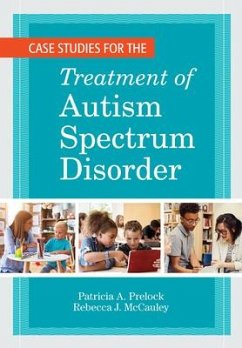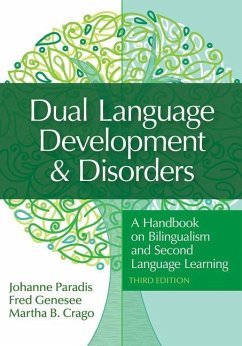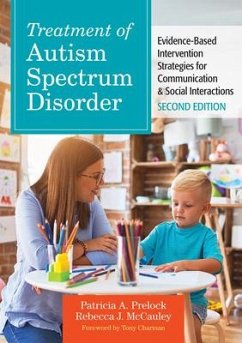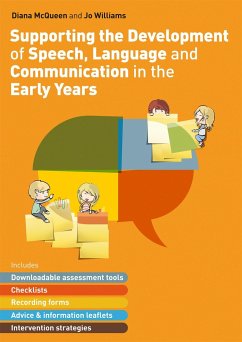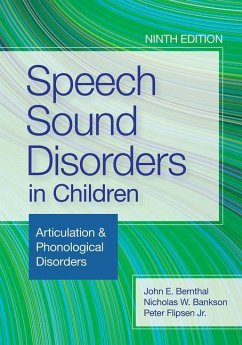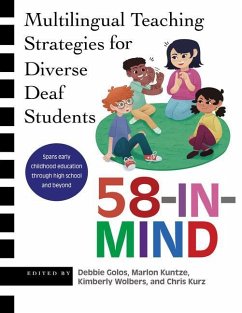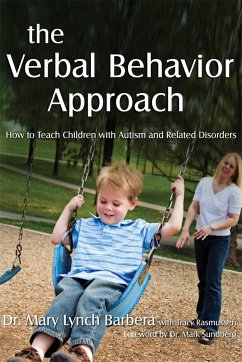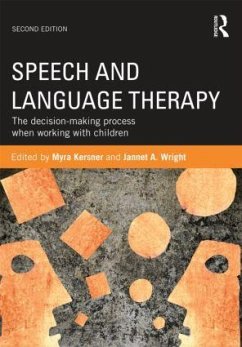Nicht lieferbar
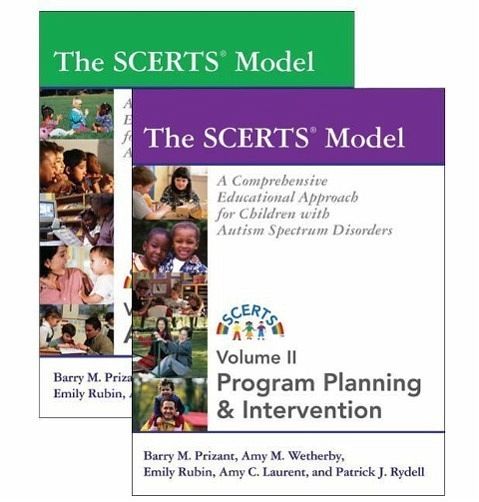
The Scerts(r) Model
A Comprehensive Educational Approach for Children with Autism Spectrum Disorders
Versandkostenfrei!
Nicht lieferbar




This two-volume set provides a multidisciplinary approach to enhancing communication and socioemotional abilities of young children with Autism Spectrum Disorder (ASD) and related disorders. The approach is a practical model that is systematic and semi-structured but is flexible to respond to the individual differences of children and families.
Barry M. Prizant, Ph.D., has more than 25 years experience as a clinical scholar, researcher, and consultant to young children with autism spectrum disorders (ASD) and related communication disabilities and their families. He is an American Speech-Language-Hearing Association fellow and is a member of the Interdisciplinary Council on Developmental and Learning Disabilities. Formerly, he was Associate Professor of Psychiatry in the Brown University Program in Medicine, Professor in the School of Communication Sciences and Disorders at Emerson College, and Advanced Post-Doctoral Fellow in Early Intervention at University of North Carolina at Chapel Hill. He has developed family-centered programs for newly diagnosed toddlers with ASD and their families in hospital and university clinic environments. He has been an invited presenter at two State of the Science Conferences on ASD at the National Institutes of Health (NIH) and has contributed to the NIH Clinical Practice Guidelines for early identification and diagnosis of ASD. Dr. Prizant's current research and clinical interests include identification and family-centered treatment of infants, toddlers, and young children who have or are at risk for sociocommunicative difficulties, including ASD. Amy M. Wetherby, Ph.D., is Professor and former Chair of the Department of Communication Disorders at Florida State University. She received her doctorate from the University of California-San Francisco/Santa Barbara in 1982. She has had more than 20 years of clinical experience in the design and implementation of communication programs for children with autism and severe communication impairments and is an American Speech-Language-Hearing Association fellow. Dr. Wetherby's research has focused on communicative and social-cognitive aspects of language difficulties in children with autism and, more recently, on the early identification of children with communicative impairments. She has published extensively on these topics and presents regularly at national conventions. She is a co-author of the Communication and Symbolic Behavior Scales (with Barry M. Prizant [Applied Symbolix, 1993]). She is the Executive Director of the Florida State University Center for Autism and Related Disabilities and is Project Director of U.S. Department of Education Model Demonstration Grant No. H324M980173 on early identification of communication disorders in infants and toddlers and Personnel Preparation Training Grant No. H029A10066 specializing in autism. Emily Rubin is Director of Communication Crossroads, a private practice in Carmel, California. She is a speech-language pathologist specializing in autism, Asperger syndrome, and related social learning disabilities. As an adjunct faculty member and lecturer at Yale University, she has served as a member of its Autism and Developmental Disabilities Clinic. She has also served as an instructor for the Communication Sciences and Disorders Department of Emerson College in Boston, Massachusetts, where she has developed courses to prepare graduate-level students to address the needs of children with autism and their families. Her publications have focused on early identification of autism, contemporary intervention models, and programming guidelines for high-functioning autism and Asperger syndrome. She has participated as a member of the American Speech-Language-Hearing Association's Ad Hoc Committee on Autism Spectrum Disorders (ASD), a committee charged with developing guidelines related to the role of speech-language pathologists in the diagnosis, assessment, and treatment of ASD. She lectures internationally and provides consultation to educational programs serving children and adolescents with autism and related developmental disorders. Amy C. Laurent is a pediatric occupational therapist who holds a master's degree in special education. Currently in private practice, she is a New England affiliate of Communication Crossroads and of Childhood Communication Services. Ms. Laurent specializes in the education of children with autism spectrum disorders (ASD) and related developmental disabilities. Through her practice, she provides comprehensive evaluations, direct therapeutic services, and consultations to educational programs for children with ASD. She also provides extensive educational and emotional support for families of children with ASD. Ms. Laurent has co-authored several journal articles and frequently lectures throughout the United States on topics related to therapeutic and educational intervention for children with ASD. Her areas of clinical interest include therapeutic intervention as it relates to the development of self-regulation and social-adaptive functioning across contexts (e.g. school, home, and community settings). Dr. Rydell has been in the field of autism and communication disorders for more than 24 years in public school, hospital, university, administration, and private practice settings. Dr. Rydell is the owner and director of Rocky Mountain Autism Center, a private center dedicated solely to working with children with autism spectrum disorders and their families. The center provides comprehensive center-, community-, and home-based assessments, programs, interventions, and training to individuals with autism, their families, and professionals. Dr. Rydell earned his doctoral and master's degrees in the field of communication disorders and special education, with a primary program emphasis in autism and early childhood education. Dr. Rydell is a Fulbright Senior Specialist grant recipient (2005) and has previously co-authored five book chapters and numerous research articles on autism and unconventional verbal behaviors. In addition, he frequently speaks at international, national, and state levels on topics related to autism.
Produktdetails
- Verlag: Brookes Publishing Co
- Seitenzahl: 744
- Erscheinungstermin: 22. November 2005
- Englisch
- Abmessung: 271mm x 218mm x 38mm
- Gewicht: 1712g
- ISBN-13: 9781557668189
- ISBN-10: 1557668183
- Artikelnr.: 21130254
Herstellerkennzeichnung
Libri GmbH
Europaallee 1
36244 Bad Hersfeld
gpsr@libri.de
Für dieses Produkt wurde noch keine Bewertung abgegeben. Wir würden uns sehr freuen, wenn du die erste Bewertung schreibst!
Eine Bewertung schreiben
Eine Bewertung schreiben
Andere Kunden interessierten sich für



